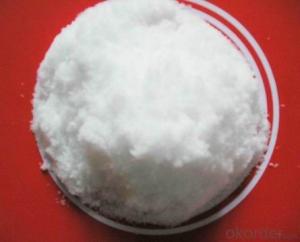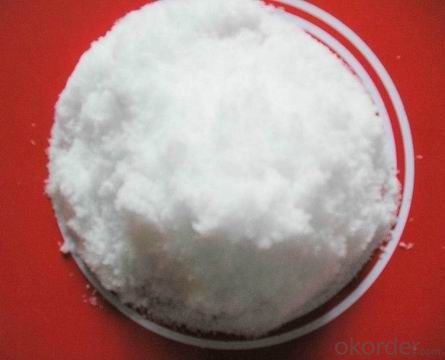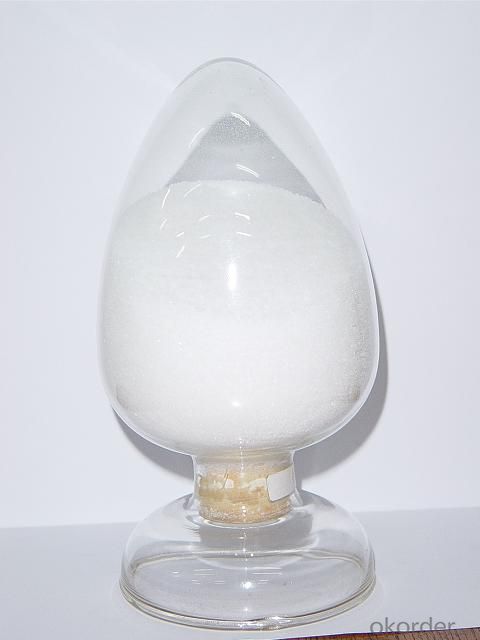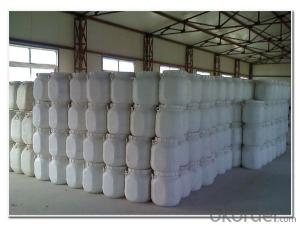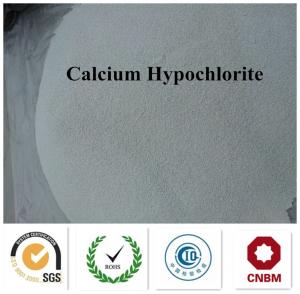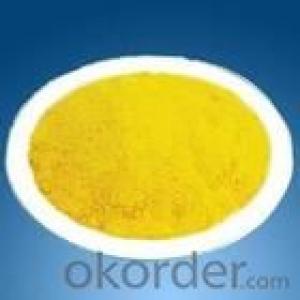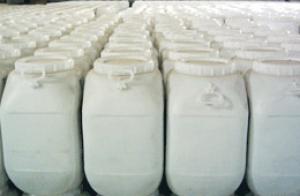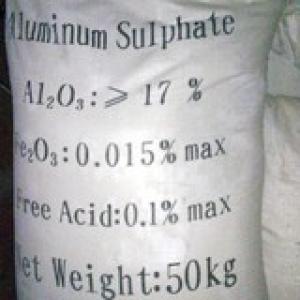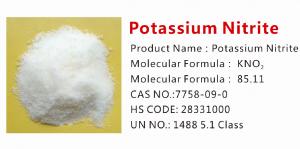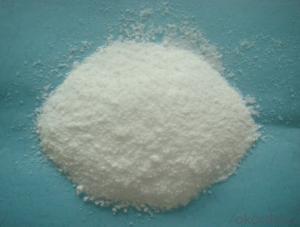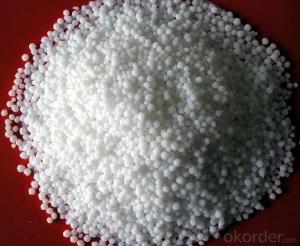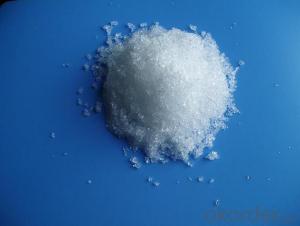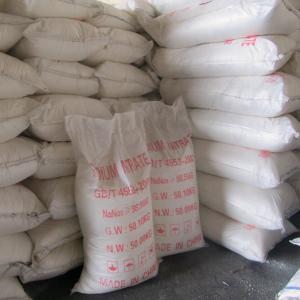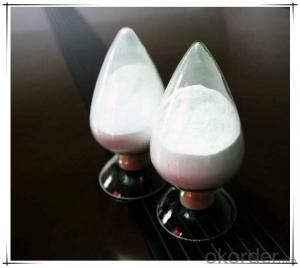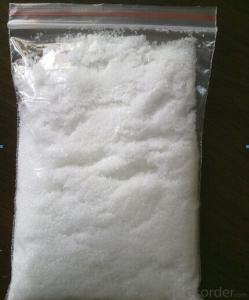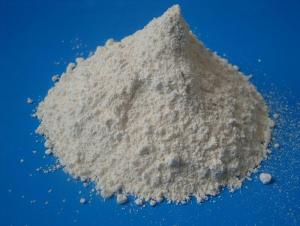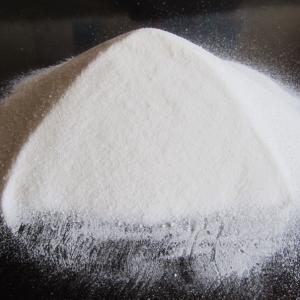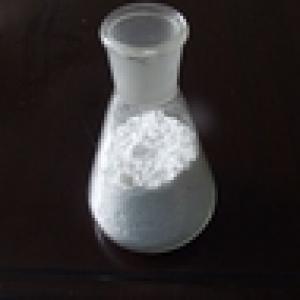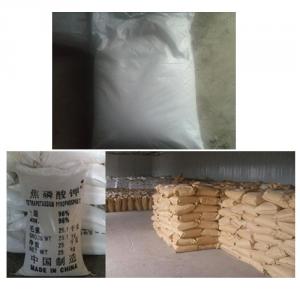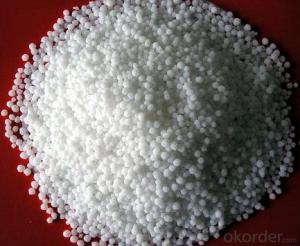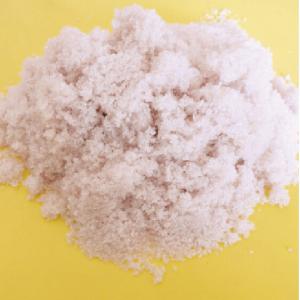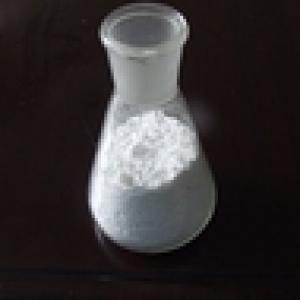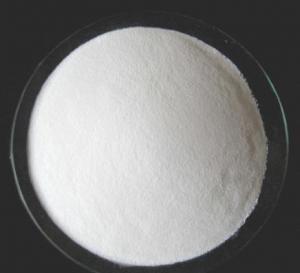Magnesium Nitrate Inorganic Salt Technical Grade
- Loading Port:
- China main port
- Payment Terms:
- TT OR LC
- Min Order Qty:
- 1000 kg
- Supply Capability:
- 500000 kg/month
OKorder Service Pledge
OKorder Financial Service
You Might Also Like
Magnesium Nitrate
Product Name: Magnesium Nitrate
Molecular formula: Mg(NO3)2 6H2O
Molecular formula: 256.40
CAS NO.:10377-60-3
HS CODE: 28342990
UN NO.: 1474 5.1 class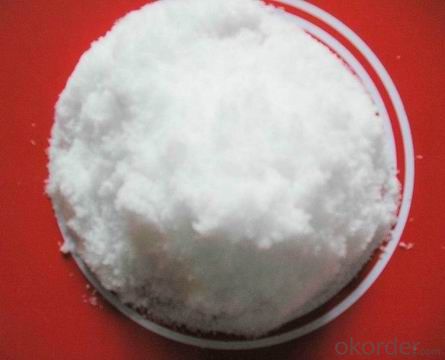
Physicochemical Properties:
Magnesium nitrate hexahydrate is colorless
crystal of monoclinic system, It is soluble in water easily, and is able to
dissolve in methanol and alcohol. It is likely to spontaneously combust
if mixed with organic chemicals.
Uses:
Concentrated nitric acid as a dehydrating agent in the industrial manufacture of explosives,
the catalyst catalysts and other magnesium salts and nitrates in raw materials.
Soluble nitrogen magnesium fertilizers for soilless cultivation of fertilizer for agriculture.
| Inspection Item | Unit | Ind. grade | Agr. grade |
| Assay | ≥ | 98.0% | 98.0% |
| Water_insolubles | ≤ | 0.05% | 0.1% |
| Iron | ≤ | 0.001% | --- |
| Heavy Metal | ≤ | 0.002% | --- |
| PH value | 5-8 | --- | |
| MgO | ≥ | --- | 15% |
| Nitrogen | ≥ | --- | 10.7% |
Packing:
In 25/50kg net PP/PE bag or the demanding of customer.
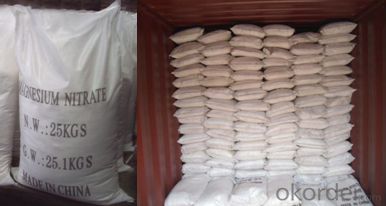
FAQ
1.Q: What is MOQ?
A: Our MOQ is 1 TON.
2.Q: Could you offer free sample?
A: We can provide free samples to you for quality testing.
3.Q: What about your packing?
A: For liquid: Flexitank, or IBC tank 1000L
For powder:Woven fabric bag with plastic film liner( 25kg or 1000kg)
Clients’ packing is workable.
4.Q: How about your productive capacity?
A: 150000 tons/Year.
5.Q: What is your delivery time?
A: Within 7 days after received deposit or L/C at sight.
- Q: How to get an inorganic salt
- Inorganic salts are salts of inorganic compounds, formerly known as minerals. Plant growth needs N, P, K three elements and Ca, Zn, B, Mg, S, Fe and other trace elements. Depending on the type and amount of inorganic salts required for plant life, the water and various proportions of inorganic salts are scientifically formulated into plant nutrient solutions. The method of cultivating plants with plant nutrient solution is called soilless cultivation. The inorganic salts used to prepare the nutrient solution are generally not available for extraction, such as potassium nitrate, calcium nitrate, magnesium sulfate, potassium dihydrogen phosphate, copper sulfate, zinc sulfate and the like, and the reagent may be a chemical fertilizer. The purity of the reagent is high and the impurities of the fertilizer are more. If you can not get it, you can use soil leaching solution (fertile soil plus fresh water, the liquid obtained after filtration), which generally contains a variety of inorganic salts.
- Q: After running the training is best to drink what drinks add inorganic salt
- C100 ah
- Q: Which solvents have some solubility in inorganic salts
- A wide variety of dyes, dissolved complex. The original dyes are organic, but some salt, some metal complexes, some of the larger molecules of the fused ring compounds, some polymer heterocyclic compounds, in some common organic solvents in the solubility is better than disperse dyes Raw dyes and oil-soluble dyes (this is actually the raw material of solvent pigments, strictly speaking, not dyes). There are basically additives in the finished dyes, such as direct dyes, acid dyes, reactive dyes, cationic dyes and other water-soluble dyes will be added inorganic salts, disperse dyes, reducing dyes will be added sulfonate sodium dispersant. In addition, the dye and other chemical products, their purity requirements are generally very low, will allow the presence of certain insoluble impurities. So the organic solvent can not be completely dissolved dye products really is very common or even a normal phenomenon.
- Q: What is the disease of inorganic salt crystals?
- Drink less, the urine will be reduced, the urine of the inorganic salt concentration will be high, the discharge of urine encountered outside the cold air, will immediately cool, urine inorganic salts to precipitate down, so that urine Into the lime watery white turbid liquid. Check this urine, the urine heated to a certain temperature will make it clear; also due to temporary urine alkalization caused by white turbid urine, such as taking alkaline drugs or After a lot of alkaline food, or eat can make the inorganic salt in the urine of the increase in the content of food, fruit, vegetables, there will be white urine.
- Q: What does salt form when it dissolves?
- Most inorganic salts are ionic in nature and therefore it will dissociate in ions. For example Copper sulphate will dissociate in Cu+2 and SO4 -2 ions. If the dissociation energy of the salt is too high, it will remain partially or completely as salt in the solution. large number of organic salts do not dissociate completely and the solution will contain Ions and salt - both.
- Q: What is the difference between organic salt and inorganic salt?
- Organic and inorganic chemistry are subdisciplines within chemistry. In organic chemistry, scientific study is concentrated towards carbon compounds and other carbon-based compounds such as hydrocarbons and their derivatives. Read more: www.differencebetween /science...
- Q: As if there are two kinds of nitrogen, phosphorus and potassium, hoping to get answers and explain their respective roles
- (N) Nutrition: Nitrogen is necessary for the growth and development of plants. Usually, the total amount of nitrogen in plants is not too high, such as 1.0-2.0% of the whole plant. The plant is a plant with high nitrogen content, and the nitrogen content in the plant leaves is about 3.5-5.0% of its dry weight.The nitrogen is mainly absorbed in the form of ammonium nitrogen and nitrate nitrogen, and some small molecules of organic nitrogen Such as urea can also be absorbed by plants.Now is the main component of protein, accounting for about 16-18% of the protein content in the cytoplasm and the nucleus are containing all the enzymes are also the main body of the protein.In addition, the nucleic acid, Phospholipids, chlorophyll, coenzyme and other compounds contain nitrogen
- Q: Lack of calcium, phosphorus, iron, zinc inorganic salt should eat what?
- Drinking milk is more appropriate to do a proper practice, the milk is rich in calcium, phosphorus, iron, and zinc. There is a food that is eaten inside the sea, the sea of food is basically the content of inorganic salts are relatively high.
- Q: Is urea an inorganic salt?
- Is not organic matter ah inorganic salts are present in the body and food minerals in the mineral, composed of organic matter and inorganic synthesis of the human body has been found to have more than 20 kinds of essential inorganic salts, about 4 to 5% of body weight. More (> 5g) for calcium, phosphorus, potassium, sodium, chlorine, magnesium, sulfur seven; daily dietary requirements are more than 100mg, known as constant elements. Other low content, with the modern analysis of technological progress Iron, copper, zinc, manganese, cobalt, molybdenum, selenium, chromium, nickel, silicon, fluorine, vanadium and other elements were found by atomic absorption spectroscopy, neutron activation, plasma emission spectroscopy and other trace analysis methods. But also the human body is necessary, the daily dietary requirements for the amount of μg ~ mg called trace elements.
- Q: The difference between the ignition of inorganic salts and organic matter
- Sodium is the main ingredient of salt. China Nutrition Society recommended adults over the age of 18 sodium suitable for daily intake of 2.2 grams, the elderly should take light food. Sodium is commonly found in a variety of foods, the main source of sodium sodium, soy sauce, pickled food, smoked food, salty food.
Send your message to us
Magnesium Nitrate Inorganic Salt Technical Grade
- Loading Port:
- China main port
- Payment Terms:
- TT OR LC
- Min Order Qty:
- 1000 kg
- Supply Capability:
- 500000 kg/month
OKorder Service Pledge
OKorder Financial Service
Similar products
Hot products
Hot Searches
Related keywords
